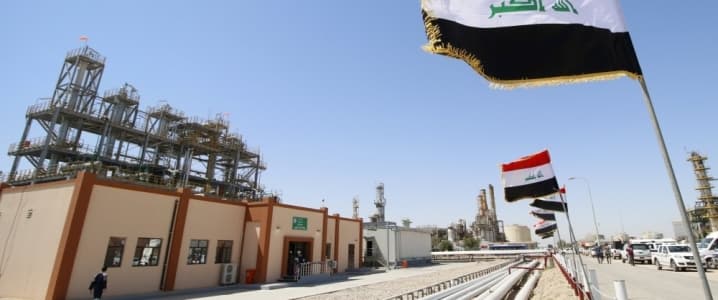Iraq will soon finalize a large-scale, long-term deal for the development of oil fields in the South with Exxon and PetroChina. The 30-year contract will involve investments of US$53 billion and potential returns for Baghdad of as much as US$400 billion over its lifetime, Prime Minister Adel Abdul Mahdi told media this week.
The deal has been in the making for four years and will involve the development of two oil fields in southern Iraq—Nahr Bin Umar and Artawi—and the construction of water supply infrastructure to southern fields in order to keep their production steady. As a result of the project, the combined production of Nahr Bin Umar and Artawi should hit half a million barrels of oil daily, from 125,000 bpd today.
“Talks now between the oil ministry and Exxon Mobil and PetroChina are focused on how to split profits if oil prices rise or decline,” Abdul Mahdi told Reuters in response to a question regarding a potential date for the finalization of the contract.
Iraq, OPEC’s second-largest oil exporter, has made no secret of its plans to considerably increase its oil production rates, despite the two OPEC+ production cut agreements, during which Iraq never really hit its allocated production quota. Raising production in the long term will be challenging, as an IHS Markit report from last year suggested, so the Exxon-PetroChina deal should be a very welcome development.
Iraq, the study noted, has a production capacity for 7 million bpd, but chances are its actual production will only grow marginally over the next decade, to about 5 million bpd, and not just because of the still difficult political and economic situation. Iraq’s oil industry has a purely technical problem: infrastructure and it is in this respect that the Exxon-PetroChina deal’s significance lies. Related: Iran’s Master Plan To Beat U.S. Sanctions
As part of the deal, besides boosting production at Nahr Bin Umar and Artawi, Exxon and PetroChina will build several new export pipelines from southern fields to the coast, and develop a water injection project for the southern fields. Another part of the deal is the production and processing of up to 100 million cu ft of natural gas from the two fields.
Iraq is a minor producer of natural gas and imports what it needs from neighbor Iran. This is not something that Washington is happy about, but as noted in an earlier analysis by Oilprice, the way to fight Iran’s considerable influence in Iraq is a gradual one, and the Exxon deal may well be part of it. In fact, the Iranian ambassador to the UK said that was exactly the case: according to him, the U.S. had allowed Iraq to continue trade with Iran on the condition that it will sign the southern fields contract with Exxon.
“The U.S. sanctions are against countries that buy Iranian oil only, and Iraq doesn’t buy any Iranian crude,” Reuters quoted a Baghdad official as saying. Prim Minister Abdul Mahdi also rejected the suggestion that the deal had anything to do with Iran-Iraq relations.
"This issue (mega-project) started in 2015, and it has nothing to do with the sanctions imposed on Iran. This issue has to do with the Iraqi economy and the Iraqi oil sector," he said as quoted bi Xinhua.
In any case, the deal is a win for all parties involved: it would help Iraq boost its production considerably, and it will also expand Exxon’s and PetroChina’s presence in the Middle East.
ADVERTISEMENT
By Irina Slav for Oilprice.com
More Top Reads From Oilprice.com:
- There’s Tremendous Room For Growth In Offshore Oil & Gas
- EIA Crude Draw Arrests Oil Price Crash
- STEO: Brent To Average $70 This Year



















And how dumb would they be to not use their own gas, instead of buying Iranian gas?
At least the US & China will be forced to get along in Iraq. The world needs the oil and we don't want Iraq to turn into a failed state terrorist haven any more than it already is, not with all that potential oil money. That kind of cash could fund a lot of mischief.